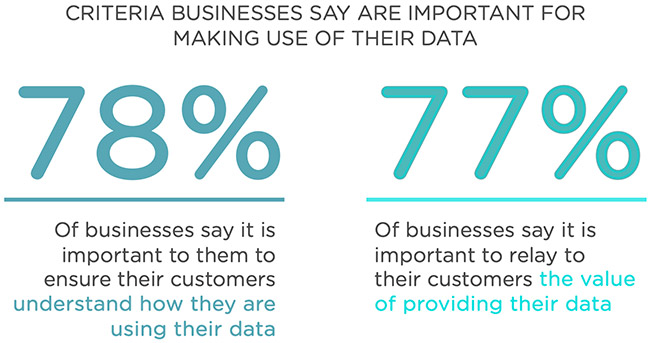Trust is at a tipping point: Consumers will react strongly if they feel their privacy is compromised
There’s a stunning lack of consumer trust in the ability of private and public sector organizations to protect their data, as well as sharply conflicting views between businesses and consumers regarding transparency in data collection and use, a Privitar research reveals.

In the 2019 Privitar Privacy Pulse, released at the International Association of Privacy Professionals Global Summit, not a single industry among those included in the research – Healthcare, Utilities, Finance, Retail, Government, Telecoms and Social Media – earned even a 50% rating for data-protection trustworthiness. Healthcare (47%) ranked highest in trustworthiness and Social Media (21%) ranked lowest.
The research, surveying 5,128 consumer respondents and 751 business respondents in the US, UK and France, shows consumers and businesses are at great odds regarding how personal data is collected and shared.
While the vast majority of consumers (81%) said they want more control over when they choose to share their personal data, more than three quarters (79%) of the businesses claimed they already empower their customers to decide how their data is used and feel they are adequately explaining this process.
Privitar’s Privacy Pulse findings also highlight the level of consumer angst about data privacy. A majority of consumer respondents saw increased regulation as a way to improve data privacy and protection. US consumers were the most likely to agree that stricter data regulations make them feel safer, with 68% agreeing compared to 65% globally.
The Privitar research shows businesses in a risk-reward quandary. Although a significant majority of businesses want to do more to better manage and protect data as well as make it more accessible, their fear of privacy risk and reputational damage caused by privacy protection failures are holding them back.
While 73% of businesses said they could be doing more to effectively manage and protect their data and 74% said they could be doing more to make their data accessible to the people who need it, 66% said the risks associated with using their data are not worth the potential benefits the organization.
Jason du Preez, Privitar’s CEO said: “These latest research findings reaffirm our belief that there is an urgent need for both trusted privacy-protection measures and much greater transparency in how data insights are used. We must always be cognizant that data points and statistics relate to people – to individuals with personal lives and a right to self-determination.”
Du Preez noted there are practical steps organizations can take today to overcome the trust and transparency challenges, harness the power of their data, and realize significant business value from it.
“By embracing privacy-by-design principles and ensuring that ethical data practices are firmly in place, businesses have the opportunity to make data privacy a competitive advantage,” said du Preez.

He laid out five steps for building trust and unlocking the power of data:
- Be transparent with customers about when, how and why their data is collected
- Clearly communicate to customers the benefits of sharing their data – for them individually, for their community and for society
- Recruit, retain and train teams of data privacy experts – and empower them to establish the right infrastructure across the business
- Equip the business with effective data privacy products to enable safer and wider data utilisation while adhering to local and/or international regulation
- Centralize and automate data privacy governance to ensure greater consistency, compliance and control